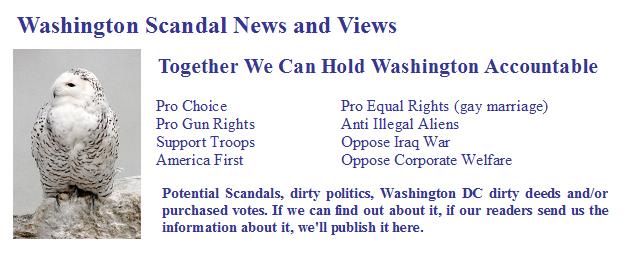 Shaking my head here...earlier tonight I posted about two SECRET White House memo's that approved CIA torture of prisoners, even though the Bush White House and administration had denied KNOWLEDGE of the torture. Now in another breaking news story it seems George Bush has used signing statements to declare key components of bills he signed into law as unconstitutional, saying they placed constraints on his Presidential Power!
Shaking my head here...earlier tonight I posted about two SECRET White House memo's that approved CIA torture of prisoners, even though the Bush White House and administration had denied KNOWLEDGE of the torture. Now in another breaking news story it seems George Bush has used signing statements to declare key components of bills he signed into law as unconstitutional, saying they placed constraints on his Presidential Power!1. Think the Iraq War is not about oil...one of the areas he had declared unconstitutional would have forbid money from the bill being used TO CONTROL IRAQI OIL!
2. Another section would have required negotiations to have Iraq share in the financial costs of the ongoing war...George Bush claims this would have weakened his powers as Commander and Chief.
In the other bill, he outlawed sections that would have strengthened legal protections against political interference with the internal watchdog officials at each executive agency. (As in INSPECTOR GENERALS!)
Based on this news, based on the fact that George W. Bush has used more signing statements to mutate Congressional Laws than all other presidents put together, I know what the first question in tomorrow night's debate should be. "If you are elected President of the United States, are you willing on your first day in office by executive degree to revoke all of George Bush's signing statements effective immediately?
Bush Declares Exceptions to Sections of Two Bills He Signed Into Law
WASHINGTON — President Bush asserted on Tuesday that he had the executive power to bypass several parts of two bills: a military authorization act and a measure giving inspectors general greater independence from White House control.
Mr. Bush signed the two measures into law. But he then issued a so-called signing statement in which he instructed the executive branch to view parts of each as unconstitutional constraints on presidential power.
In the authorization bill, Mr. Bush challenged four sections. One forbid the money from being used “to exercise United States control of the oil resources of Iraq”; another required negotiations for an agreement by which Iraq would share some of the costs of the American military operations there.
The sections “purport to impose requirements that could inhibit the president’s ability to carry out his constitutional obligations,” including as commander in chief, Mr. Bush wrote.
In the other bill, he raised concerns about two sections that strengthen legal protections against political interference with the internal watchdog officials at each executive agency.








No comments:
Post a Comment